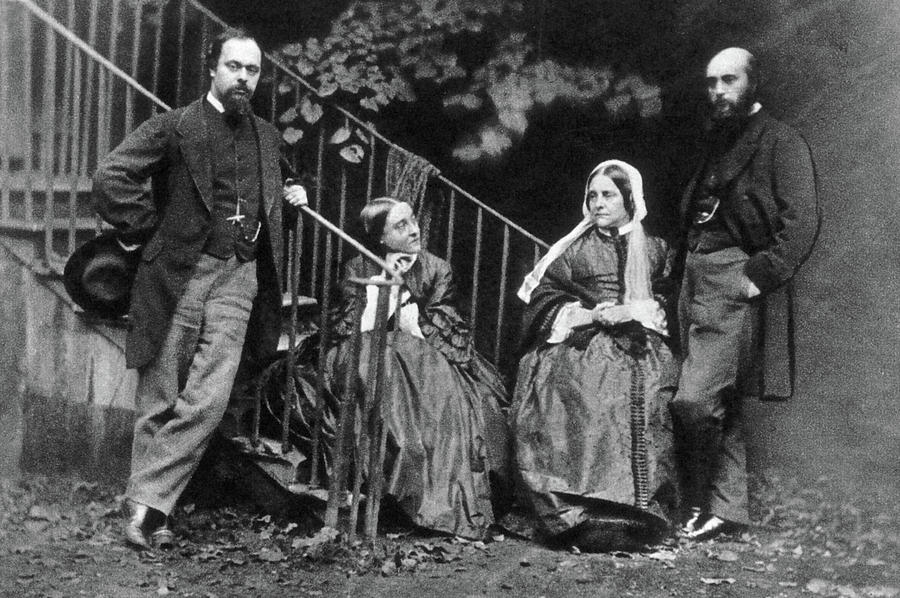The house of life (1903):
I. Love-sight 00:00
II. Silent noon 04:43
III. Love's minstrels 08:34
IV. Heart's haven 13:59
V. Death in love 16:50
VI. Love's last gift 21:11
Vaughan Williams, Ralph (1872-1958) -composer
 Ραλφ Βον Ουίλιαμς - Βικιπαίδεια
Ραλφ Βον Ουίλιαμς - Βικιπαίδεια
Philippe Sly -baritone
Philippe Sly (1988/89) - Wikipedia
Michael McMahon -piano
Playlist: "The art of British song: Elgar, Somervell, Williams, Finzi..": https://www.youtube.com/playlist?acti... Score: http://conquest.imslp.info/files/imgl...
In the first few years of the twentieth century, Vaughan Williams set quite a lot of verse by Dante Gabriel Rossetti to music (he also set a few poems by Rossetti's younger sister, Christina).
ROSSETTI FAMILY, 1863. The Rossetti family circle Dante Gabriel, Christina, Mrs. Rossetti, and William Michael. Photographed in 1863 by Lewis Carroll.
The most ambitious of these settings are the cantata for voice and piano Willow-Wood of 1903, and the song cycle The House of Life, which was first performed in London on December 2, 1904 by soprano Edith Clegg and pianist Hamilton Harty. Vaughan Williams's other song cycle of 1904, Songs of Travel, was premiered at this same concert.
Despite the interest of composers like Vaughan Williams and Claude Debussy, the poetry of Rossetti isn't the most conducive to musical settings. While the rhythms and, as one critic would have it, the "voluptuousness" of the poetry are more than interesting enough from a composer's standpoint, there is little imagery that might lend itself to musical imitation.
This might explain the slightly self-conscious quality of The House of Life, especially as compared to the more robust settings of Robert Louis Stevenson in Songs of Travel.
The cycle opens with "Love-Sight"; in an easy triple meter, it builds to a big climax with "The ground-whirl of the perished leaves of Hope, / The wind of Death's imperishable wing."
The song closes with a lovely piano postlude. "Silent Noon" calmly evokes the imagery of a lazy summer's day "when twofold silence was the song of love."
Perhaps the most ambitious song of the set is "Love's Minstrels," with its rhythmic freedom, its passionate arpeggios accompanying the second verse, and the solo piano's prologue and epilogue.
Both "Heart's Haven" and "Death in Love" are rather grandiose -- perhaps too large of gesture for the intimacy of the poetry. Vaughan Williams fans can, however, hear certain anticipations, particularly in the latter song, of A Sea Symphony, on which he was starting work at about this time.
The cycle ends on a restrained note with "Love's Last Gift." While the song is on the conventional side, there is a nice evocation of the "warm sea," and some interesting and unusual harmonies for "those worse things the wind is moaning of."


Δεν υπάρχουν σχόλια:
Δημοσίευση σχολίου